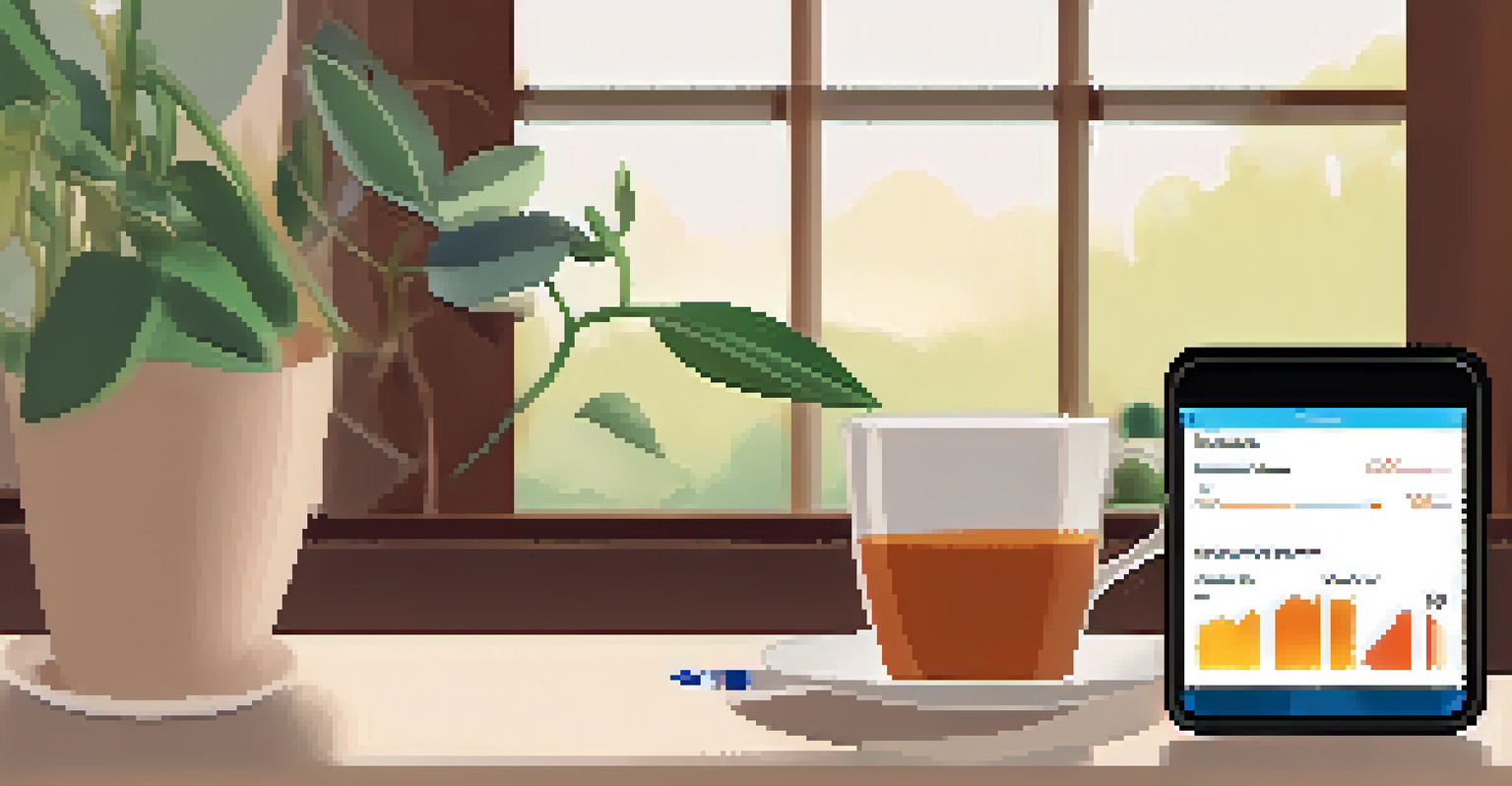Mental Health Apps: Tools for Well-Being and Support

Understanding Mental Health Apps and Their Benefits
Mental health apps have emerged as valuable resources for individuals seeking support. These digital tools can offer everything from meditation guidance to mood tracking, making mental health care more accessible than ever. With the rise of technology, many people are turning to their smartphones for assistance, finding it a convenient way to prioritize their mental well-being.
The greatest weapon against stress is our ability to choose one thought over another.
One of the primary benefits of these apps is their ability to provide help at any time and place. Whether you’re at home, at work, or on the go, you can access the tools you need to manage stress, anxiety, or depression. This flexibility empowers users to take charge of their mental health in a way that fits into their busy lives.
Moreover, mental health apps often incorporate evidence-based techniques, such as cognitive behavioral therapy (CBT) or mindfulness practices. By using these scientifically-backed methods, users can cultivate healthier thought patterns and coping skills, leading to a more balanced emotional state.
Types of Mental Health Apps Available Today
There’s a wide variety of mental health apps available, each catering to different needs and preferences. For instance, some apps focus on mindfulness and meditation, while others might specialize in mood tracking or providing therapy sessions through chat. This diverse range means that users can find an app that resonates with their specific goals and challenges.

Apps like Headspace and Calm are popular for their guided meditations, allowing users to unwind and practice mindfulness. On the other hand, platforms like Moodfit and Daylio help individuals track their moods and identify patterns over time, making it easier to understand triggers and make informed decisions about their mental health.
Mental Health Apps Enhance Access
These apps provide flexible support for mental health, allowing users to access tools anytime and anywhere.
Furthermore, some apps offer a community aspect, connecting users with others facing similar challenges. This sense of belonging can be incredibly uplifting, reminding users that they are not alone in their journey toward better mental health.
How to Choose the Right Mental Health App for You
Selecting the right mental health app can feel overwhelming given the plethora of options available. Start by identifying your specific needs—are you looking for stress relief, mood tracking, or perhaps a virtual therapist? Narrowing down your focus can help streamline the selection process considerably.
Mental health is not a destination, but a process. It's about how you drive, not where you're going.
Next, look for apps that have been reviewed positively and are backed by mental health professionals. Reading user experiences can also provide valuable insights into the app's effectiveness and usability. Remember, what works for one person might not work for another, so it's essential to find an app that fits your unique preferences.
Finally, don’t hesitate to try out a few different apps. Many offer free trials or basic versions that allow you to explore their features without commitment. This hands-on approach can help you determine which app resonates best with you before making a long-term decision.
Integrating Mental Health Apps Into Your Daily Routine
Once you've found a mental health app that suits your needs, the next step is incorporating it into your daily routine. Consistency is key when it comes to reaping the benefits of these tools, so try to dedicate a specific time each day for using the app. Whether it’s morning meditation or evening mood tracking, creating a habit can enhance its effectiveness.
You might also consider setting reminders to keep yourself accountable. Notifications can serve as gentle nudges to engage with your mental health practices, ensuring you don’t overlook this crucial aspect of your well-being amidst a busy schedule. Over time, these small actions can lead to significant improvements in your mental health.
Choosing the Right App Matters
Identifying your specific needs and researching app credentials can help you select the most effective mental health app.
Additionally, don't forget to reflect on your progress regularly. Many apps provide insights and analytics regarding your usage and mood changes, which can be encouraging and motivating. Acknowledging your growth can help reinforce the habit and lead to a more profound commitment to your mental well-being.
The Role of Community in Mental Health Apps
Community features in mental health apps can provide a sense of belonging and support that is invaluable. Many platforms encourage users to connect with others, share experiences, and offer advice. This peer support can help individuals feel less isolated, reminding them that others share similar struggles.
For example, apps like TalkSpace not only connect users with licensed therapists but also foster community discussions. Engaging with others in a safe, moderated environment can enhance the therapeutic experience, making it more relatable and grounded in shared experiences.
However, it's essential to approach community features with caution. While many users find support in these interactions, it's crucial to remember that advice from peers isn’t a substitute for professional guidance. Always prioritize your safety and well-being when engaging with others in these spaces.
Potential Drawbacks of Mental Health Apps
While mental health apps offer numerous benefits, there are also potential drawbacks to consider. One significant concern is the risk of self-diagnosis. Without the guidance of a professional, users might misinterpret their symptoms or overlook the need for more comprehensive care, which can lead to further distress.
Additionally, not all apps are created equal; some may lack scientific backing or fail to provide adequate support. It’s essential to do your research and choose apps that have been vetted by mental health professionals. Reading reviews and checking credentials can help ensure you're using a reputable service.
Community Support is Valuable
Connecting with others through app communities can foster a sense of belonging, but it's important to prioritize professional guidance.
Lastly, excessive reliance on apps may lead to reduced face-to-face interactions. While digital tools can complement traditional therapy, they shouldn’t replace it entirely. Striking a balance between app usage and in-person support systems is crucial for holistic mental health care.
The Future of Mental Health Apps and Technology
As technology continues to evolve, the future of mental health apps looks promising. We can expect innovations that enhance user experience, such as personalized algorithms that tailor content based on individual needs. This level of customization could make mental health support even more effective and user-friendly.
Moreover, the integration of artificial intelligence (AI) may lead to more sophisticated virtual therapists capable of providing immediate, personalized feedback. Imagine having a digital support system that learns and adapts to your preferences over time—this is the future we might be heading toward!

However, with technological advancements come ethical considerations, particularly regarding data privacy. It’s vital for developers to prioritize user confidentiality and transparency. As users, staying informed and advocating for our rights will help ensure that mental health apps remain safe spaces for everyone.